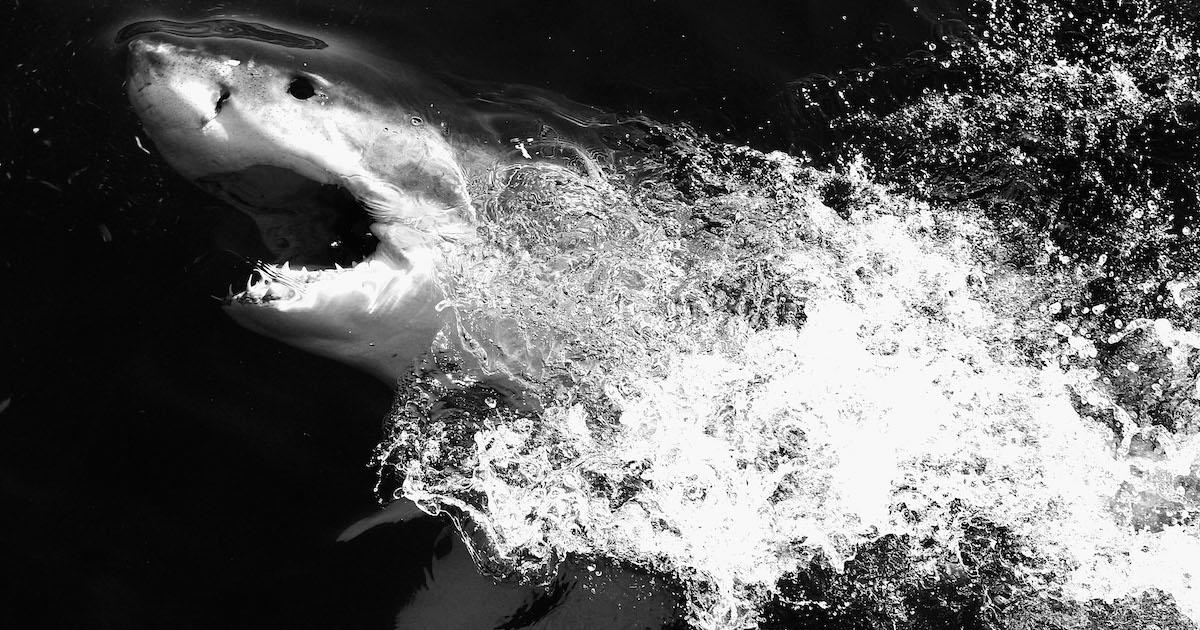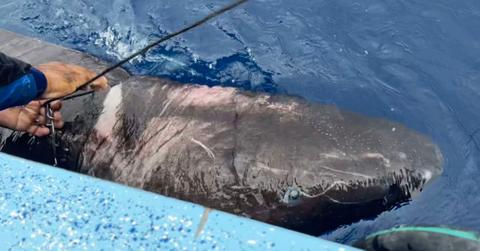Greenland Shark, Native to Polar Waters, Puzzlingly Spotted in Balmy Belize
Published Aug. 3 2022, 2:07 p.m. ET
Everyone loves a tropical vacation — but a certain shark’s Caribbean getaway has left researchers bewildered. A Greenland shark, native to the Arctic, has just been spotted in Belize.
The Greenland shark, which is partially blind, is known for its long lifespan and thriving in cold waters — so what was this shark doing in the Caribbean?
An ancient Greenland shark has been spotted in Belize’s tropical waters.
In July 2022, researchers from Florida International University and Riversdale, Belize published a study in the journal Springer detailing their discovery. According to a press release published by the university’s FIU News, lead author Devanshi Kasana was working alongside fishermen in Glover’s Reef, Belize to tag tiger sharks in the area.
Early in the morning, after a night of work, the team came across an unexpected and “rather sluggish creature.”
“It looked old — ancient, even — and more like an elongated, smooth stone that had sprung to life,” FIU News reported. “It had a blunt snout and small pale bluish colored eyes.”

A Great White Shark is seen in the Indian Ocean near the town of Gans Bay on July 8, 2010 in Gansbaai, South Africa.
“At first, I was sure it was something else, like a six gill shark that are well known from deep waters off coral reefs,” Kasana stated. “I knew it was something unusual and so did the fishers, who hadn’t ever seen anything quite like it in all their combined years of fishing.”
Kasana did some research, consulted with the Mote Marine Laboratory & Aquarium’s Demian Chapman (who became a co-author on the paper), and other shark experts to identify the shark, and they determined that it was most likely a sleeper shark.
Specifically, they think it is a Greenland shark (Somniosus microcephalus), though there’s also a chance the shark in question is a hybrid of the Greenland shark and the Pacific sleeper shark (Somniosus pacificus).
Greenland sharks are a nearly blind, polar species — so why was one in the Caribbean?
According to Britannica, Greenland sharks are typically found in polar and subpolar oceans, including the Arctic Ocean and North Atlantic — meaning that this shark being found in the warm waters of the Caribbean was a real surprise. In fact, this is the first time a sleeper shark has been observed in the western Caribbean region, the study noted.
So how did this cold weather shark wind up in the warm water of Belize? The study’s authors believe that Greenland sharks may “occur at depth in tropical regions,” where temperatures are cooler — but more research is certainly needed to discover exactly how this happened.
The Greenland shark’s lifespan is extremely long — why?
Greenland sharks are known for being a bit of a mystery in the world of marine biology. The carnivorous, slow-moving animals are classified as Vulnerable by the IUCN. They are also known as the longest-living vertebrates on Earth, with an estimated lifespan of about 400 years, as per FIU News.
So why does the Greenland shark live so long? The NOAA theorizes that the Greenland shark’s exceptionally slow metabolism has contributed to Greenland sharks moving so slowly, growing so slowly, aging so slowly, and reaching sexual maturity so slowly (that doesn’t happen until they are about 100 years old).
